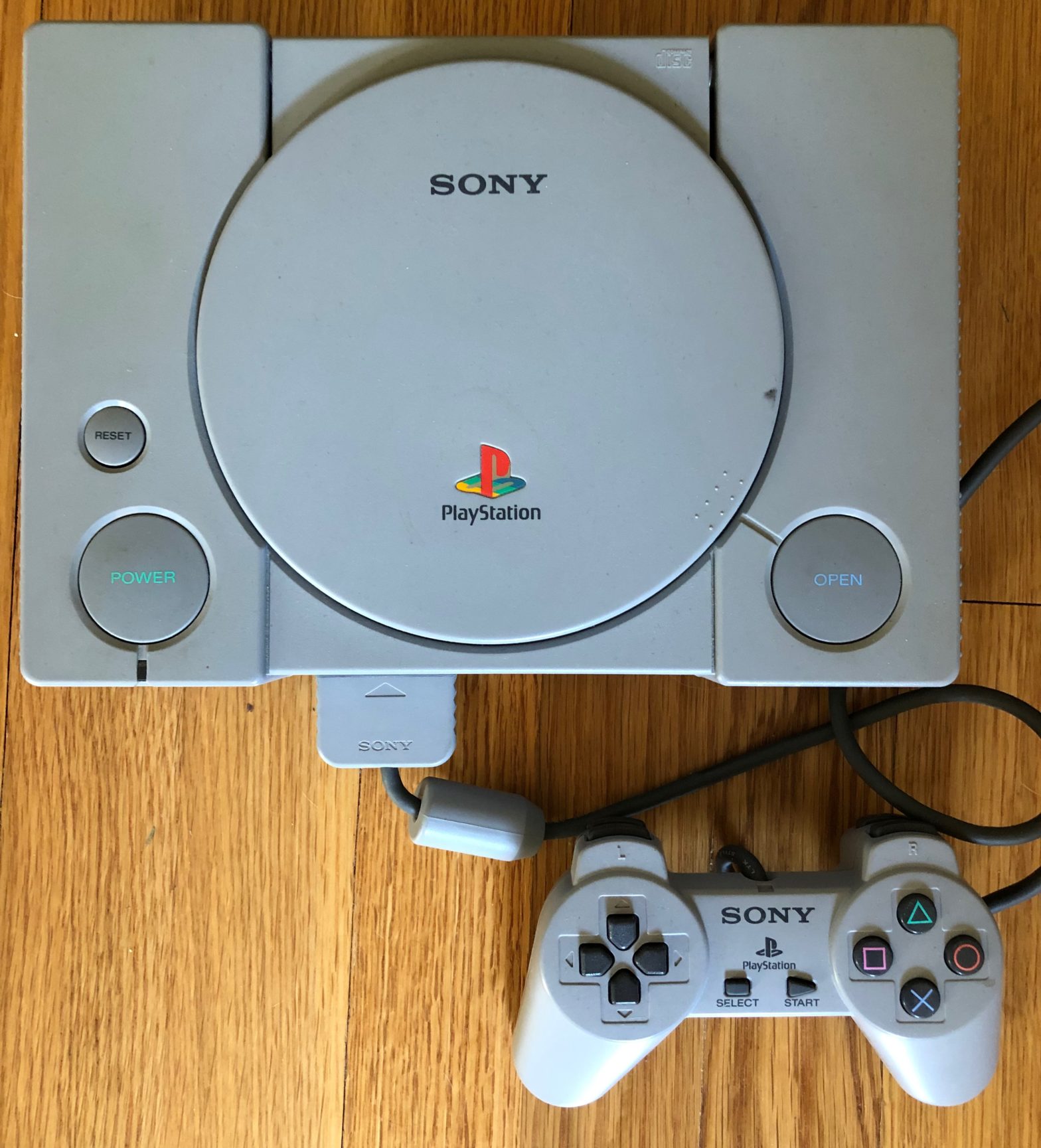Since the name of this blog is “PSXMag”, I figured I should explain where the name comes from. No, it’s not just because I couldn’t afford a better domain name (though that’s probably true as well). For those plugged into the gaming industry back in the mid-1990s, you may recall the hype leading up to the release of what is now known as the PlayStation (PS1) when the upcoming console was referred to as the “PSX” or “PS-X”. By why?
A Code Name
Much has been written about the origin story of the PlayStation, but if you aren’t aware it was originally planned to be a joint project between Nintendo and Sony, where Sony would build the CD-ROM add-on to a somewhat modified Super Nintendo. There’s more to the story of course, and the above linked article on Polygon as well as their excellent interview with some of the Sony employees who witnessed to it all, tell the tale better than I ever will.
But back to the PSX. During this time, and even after the Nintendo deal fell apart, apparently the code name for the console in development was referred to as the PSX, the “Playstation X” or in some cases the PS-X. Insiders and game media adopted the nickname as well, as evidenced in these excerpts from the September 1995 issue of Game Informer right before the US launch of the console.

Important note – the “Paul” you see above is the late Paul Anderson, who unfortunately passed away from ALS in 2007.
Selling in the US Market
While the PlayStation launched in Japan in December 1994, it didn’t hit the streets of the US and Europe until September 1995. While the name “PlayStation” is well known now, it didn’t seem to hit the mark in focus groups in the United States back in 1994/95. According to Andrew House, former president and CEO of Sony Interactive Entertainment (via Game Informer, January 2020):
The U.S. operation at the time, prior to my joining it, actually wanted to rename the product. They thought “PlayStation” was too kiddy, it didn’t fit the kind of marketing goals they wanted, and they wanted to call it the PSX.
Andrew House, Game Informer, January 2020
So, as it turns out the codename of the project was preferred by some at Sony North America prior to launch. However, Sony senior management overruled and thus the console launched as the “PlayStation” and it all worked out in the end.
“PSX” In Gaming Media
Even after the launch of the PlayStation in the US, the name seemed to stick with many in the gaming industry. Check out this preview of Need for Speed in Game Informer March 1996, months after the official US launch.
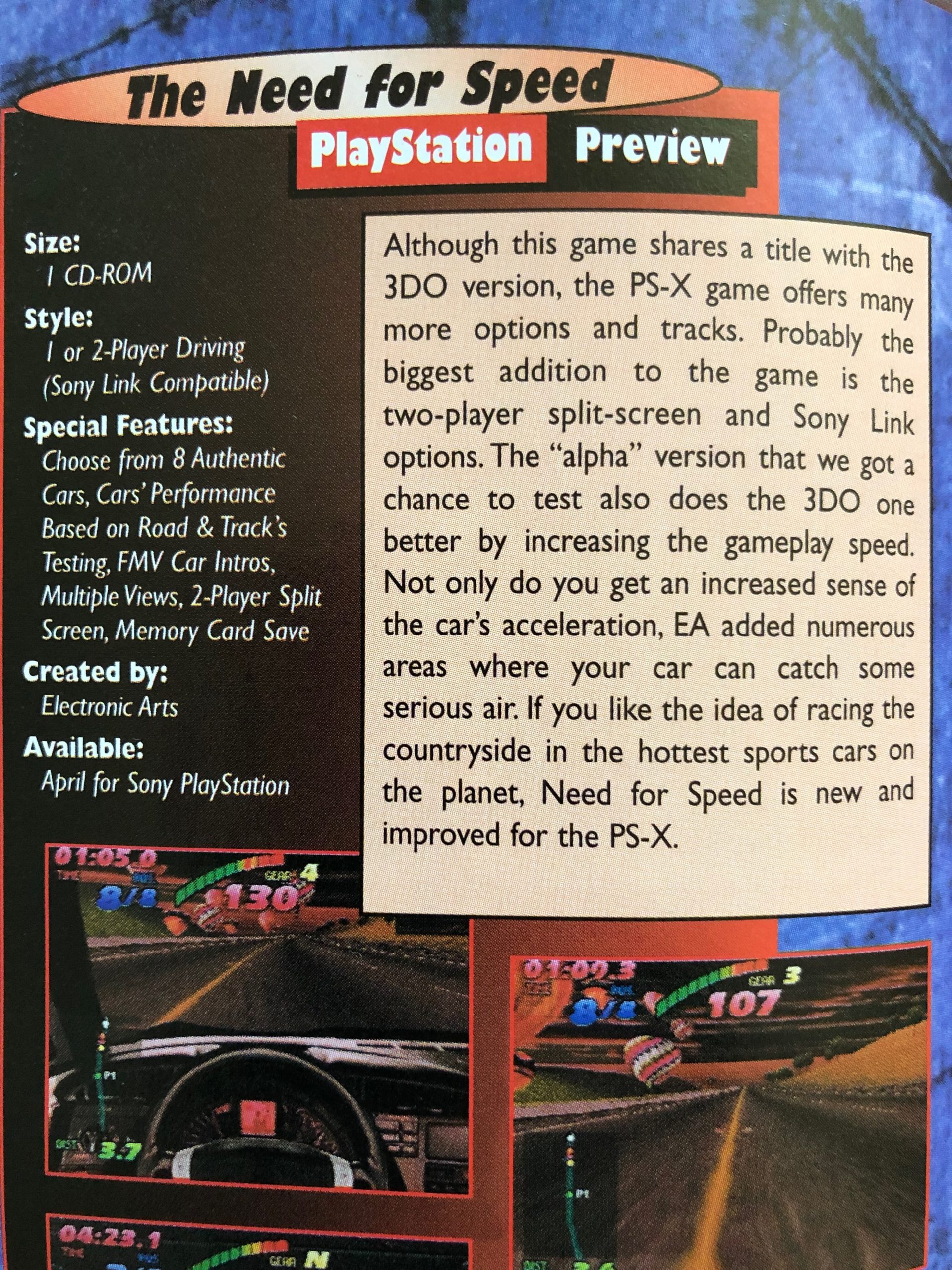
And, it wasn’t just in the US either. In prep for launch, the UK game press referred to the system as the PlayStation and PSX interchangeably as seen in this excerpt from Ultimate Future Games (distributed in the UK) in their July 1995 issue.
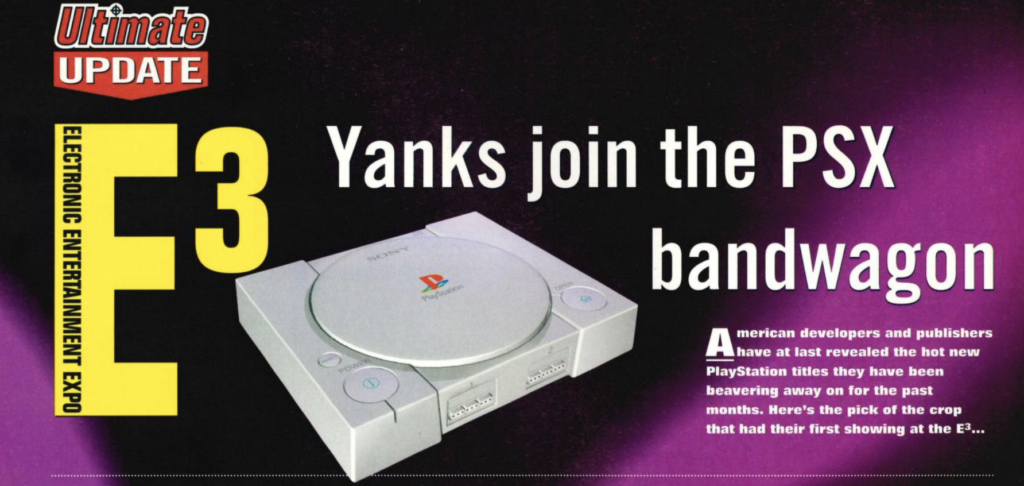
And just like in the US, the name stuck after the console was launched. Per this excerpt from Extreme PlayStation Magazine from August 1998, the PSX nickname was alive and well in the UK several years after the PlayStation was released.
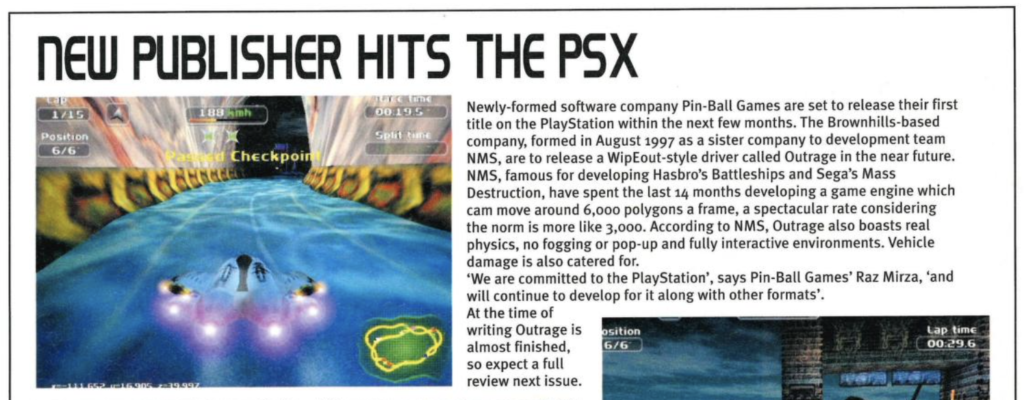
Official Game Branding
It’s rare, but I’ve even seen “PSX” printed on some PlayStation game packaging, like the copy of NCAA Football 2001 (released in 2000) shown below. I’m not an expert on sealed PS1 games, but a few hours of research on eBay and beyond reveals that EA Sports games are the most likely to get such labels. Even across those titles, it’s not common. Still, the fact that a publisher added the unofficial name of the console to a label gives you an idea of the staying power of a nickname, even years after the release of the PlayStation.
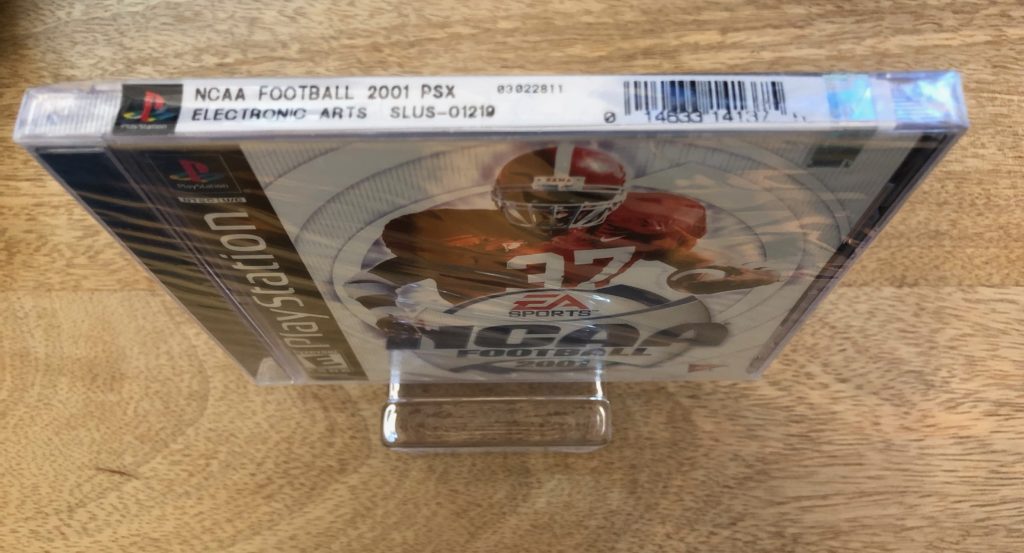
The Legacy of the PSX Name
Though I tend to refer to the original console as the “PS1”, the PSX nickname seems to have stuck with many who were present during that time. As an aside, an actual device called the PSX was released by Sony in Japan in 2003, and for a time (and perhaps in the future) Sony ran an event called the PlayStation Experience which was sometimes referred to as PSXl. However, those are not what most think of when they hear the term “PSX”.
PSX lives on as a name that represents the promise of a truly new-gen console that planted the seed for the next 25+ years of PlayStation success. To say that the hype was real is understating it. Even those who expected a lot of the upcoming 32-bit console couldn’t have imagined where we are today with the PS5 and the bright future beyond.

